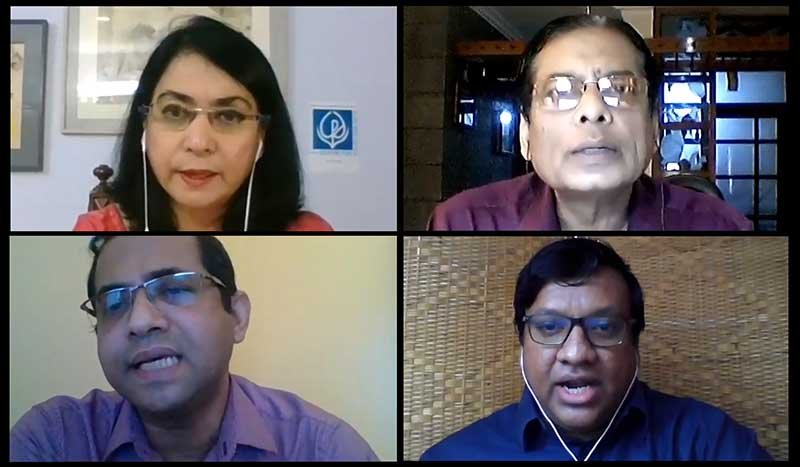
It seems that the proposed national budget for the fiscal year 2020-21 have not quite apprehended the ground realities in Bangladesh in the wake of COVID-19 pandemic. The government still aims for higher GDP growth where the priorities should have been improving public services for health, social safety net, agriculture, and employment generation.
The current pandemic crisis has been hitting the citizens of poor and middle-income classes hard. But the proposed budget has hardly addressed inequality and poverty. It does not reflect any innovative proposals and schemes for the affected people and as if the country will overcome the economic slowdown soon.
https://www.facebook.com/cpd.org.bd/videos/905513576624081/
The Centre for Policy Dialogue (CPD) shared these observations on the proposed national budget for FY2021 on 12 June 2020 through a virtual media briefing. Dr Fahmida Khatun, Executive Director, CPD, made the presentation on budget analysis. Every year CPD analyses the proposed national budget overnight and presents it to the public under its flagship programme Independent Review of Bangladesh’s Development (IRBD).
Dr Fahmida Khatun said that the country’s economy has been suffering from daunting challenges from the very beginning of the ongoing fiscal year which have been worsened by the outbreak of COVID-19 pandemic. This is not the time to get carried away with growth numbers, this is the time to think for the lives and livelihoods of our citizens. The budget does not provide any innovative fiscal policy structure to tackle the multifaceted COVID challenges. The government has targeted a revenue generation equivalent to BDT 378,000 crore in FY21, which is not realistic given the capacity of the National Board of Revenue (NBR). Keeping the option for whitening black money is an injustice to the honest taxpayers. Moreover, this measure has not been successful to whiten any significant amount of money despite the facility being given in every budget, Dr Khatun said.
Professor Mustafizur Rahman, Distinguished Fellow, CPD, observed that the government is more concerned about GDP growth during a crisis like the COVID-19 pandemic. The prime concern should have been ensuring fiscal space to build up a support mechanism for the affected people. The number of COVID-19 patients is on the rise, but we see no plan to flatten the curve and stabilise the health sector. Rather, the government is moving forward with an unrealistic target with a weak revenue mobilisation structure, he added.
Dr Khondaker Golam Moazzem, Research Director, CPD, mentioned that apart from the health sector and revenue generation, the crisis also has impact on private sector investment and employment generation. The government is targeting a 125% growth for private investment, which is unrealistic within the current growth trajectory. There is no clear outline for employment generation. A number of citizens have lost their jobs and many migrant workers have returned to home. There should have been fiscal allocation and clear indication for employment generation considering the COVID-crisis, said Dr Moazzem.
Mr Towfiqul Islam Khan, Senior Research Fellow, identified that the proposed budget for FY21 may not have adequately prioritised the pandemic challenges for the coming days. The government has proposed a new allocation of BDT 21,022 crore for various activities related to tackling COVID-19 challenges, which is 3.7% of total budget. On the other hand, the Finance Division receives an incremental amount of BDT 33,399 crore which is about 50.3% of total additional public expenditure and, BDT 27,961 crore has been proposed for Investments in Shares and Equities for FY21 (which was BDT 13,459 crore in RBFY20), he said.
The media briefing ended with a q&a session with journalists.


